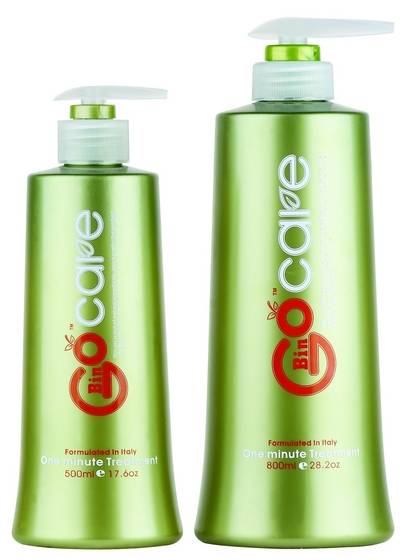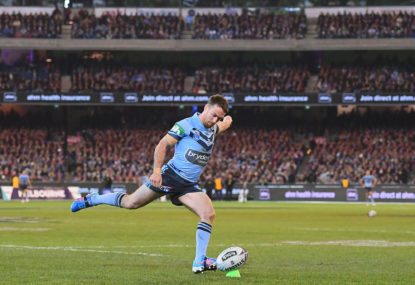Bingo (n.) lotto-like game of chance, 1924; many theories about its origin, none satisfying; the most likely is bingo! As an exclamation of sudden realization or surprise (attested from 1923). Uncertain connection to the slang word for 'brandy' (1690s); attested as 'liquor' in American English from 1861. Bingo History For the last few hundred years, the game of bingo has worked its way into the culture of multiple European countries and eventually found its way into the United States. Despite the time and distance, the game has traveled, players are still enjoying the game almost the same way it’s been played since day one. Bingo Name Meaning Historically, surnames evolved as a way to sort people into groups - by occupation, place of origin, clan affiliation, patronage, parentage, adoption, and even physical characteristics (like red hair). Many of the modern surnames in the dictionary can be traced back to Britain and Ireland.
Have you ever wondered why your bingo callershouts “two fat ladies“? Or “doctor’s orders“? Or “two little ducks“? Who was “Tom Mix” and “Burlington Bertie”. Where did this bingo lingo originate? (Please note that here we discuss bingo call origins – not the ‘bingo lingo’ referring to abbreviations etc used in bingo chat rooms).

The truth is that while most of these bingo terms are known, some others are a little unclear. Take a look at “Kelly’s eye” for instance. Different sources may even given a different meaning to the same call.
Certainly the military is responsible for many of the calls – all the army divisions for example. Plus “Doctor’s orders“, “6 & 2 to Waterloo” etc. This is no surprise considering that bingo began as a gambling game popular in the early Army and Navy. Which will seem strange to those people today who still believe that its’ a game for little old ladies!

Bingo Origin
The list below gives you as much information as we currently have regarding bingo calling origins. Please let us know if you have further / differing info!
Two Fat Ladies – and other bingo lingo.
1 Kelly’s eye – All sources suggest it is military slang. It may originate from the outlaw Ned Kelly. Or the music hall song “Has Anybody Here Seen Kelly?” But neither have anything to do with only one eye.
6 Tom Mix – a cowboy film star from the silent movie era.
8Harry Tate – a music hall comedian and early film star.
9 doctor’s orders / doctor’s joy – number 9 was a laxative pill issued in the army and navy. Supposedly because 9pm was the latest time in the day when a doctor could be seen.
10 Theresa’s den – changes depending upon the Prime Minister at the time. So has variously been Maggie’s den, Tony’s den etc.
11 legs – looking like a pair of legs.
14 the lawnmower – early lawnmowers had a 14 inch blade.
17 dancing queen – “You are the dancing queen, young and sweet, only seventeen” – ABBA.
17 old Ireland – could be because St Patrick’s Day is on March 17th. But more likely to be that when Ireland was all one country it was made up of 17 counties.
21 royal salute – referring to a 21 gun salute.
22 two little ducks – the number 2 looks like a duck.
22 dinkie-doo – a dated term for a concert party.
23 The Lord is My Shepherd – the first line of psalm 23.
24 Pompey whore – Sailors nickname for Portsmouth. And who would they go and see as soon as they docked?
26 half a crown / bed and breakfast – both refer to the 2/6 of old money – supposedly the price of one night’s B&B at one time.
28 in a state – ‘two and eight’ is cockney rhyming slang for ‘in a state’.
28 The Old Braggs – the 28th Foot The North Gloucestershire Army Regiment.
30 Dirty Gertie – a 1946 film.
30 Burlington Bertie – a popular music hall song from the early 1900s.
33 Sherwood Forrest – say ‘all the threes’ in an Irish accent…..
39 steps – from the John Buchan novel & Alfred Hitchcock film “The Thirty Nine Steps”.
39 Jack Benny – an American comedian who was big in the 1950s and 60s. His ‘running gag’ was that he was 39 years old.
42 the street in Manhattan – ’42nd Street’ was a 1933 film.
44 droopy drawers – looks like a pair of drawers half way down.
44 Aldershot Ladies – a military term – originally ‘Aldershot whores’. But was cleaned up a little …….
45 cowboy’s friend – a Colt 45 revolver.
49 PC – a 1940s / 50s radio show about Police Constable Archibald Berkeley-Willoughby – P.C. 49.
50 Hawaii five oh – an American 70s police drama.
50 Snow White’s number – “five ohhh five ohhh its off to work we go…..”
51 The Highland Div – the 51st Army Division.
52 The Lowland Div – the 52nd Army Division.
52 Danny La Rue – a 60s / 70s drag artist.
53 here comes Herbie – The number on the bonnet of the Walt Disney car.
History Of Bingo
53 The Welsh Div – the 53rd Army Division.
54 house with a bamboo door –“Number fifty-four, the house with the bamboo door” – Earl Grant.
56 Shotts bus – the number 56 bus went from Glasgow to Shotts.
56 was she worth it? – 5/6 was supposedly once the price of a marriage licence (the same story goes for 7/6).
57 Heinz varieties – ‘Heinz 57 varieties’ is the famous company slogan.
58 choo choo Thomas – we all recognise Thomas the Tank Engine as being no. 1 engine. But it would seem he has had a few number changes throughout his career – no. 58 being one of them at some point in the late 1950s. (thanks to Eugene Rittgers for his help in discovering this ….)
59 the Brighton Line – refers to the London to Brighton bus service. Was either a 59 bus or cost 5/9.
62 tickety-boo – an army phrase. possibly originating from the Hindi “tickee babu” meaning “everything’s alright sir”.
62 turn of the screw – a Henry James ghost story.
62 to Waterloo – a Naval term. Not referring to the battle but to the cost – 6/2 – of a the fare from Portsmouth to Waterloo station.
64 The Beatle’s number –“Will you still need me, will you still feed me, when I’m sixty-four?” – The Beatles.
67 the argumentative number – from the phrase “at sixes and sevens” meaning to be in a state of confusion.
68 saving grace – unknown. Another example of bingo lingo with obscure origins.
72 par for the course – the typical par for a championship golf course.
75 Big Daddy – in American bingo the numbers go from 1 – 75. So this is the highest on the card. But taken on in Britain because of the name of the 70s wrestler.
76 was she worth it? – 7/6 was supposedly once the price of a marriage licence (the same story goes for 5/6).
76 trombones – “Seventy-six trombones led the big parade” – from ‘The Music Man’.
77 Sunset Strip – an American TV show from the 50s/60s.
80 Gandhi’s breakfast – because when fasting Gandhi ‘ate nothing’ / ‘eight nothing’. Also the number looks like someone sitting cross legged by an empty plate from above.
83 Ethel’s ear – the original fat lady who played bingo – now lost to legend. She supposedly had large ears!
Bingo History Of The Game
86 between the sticks – a common reference at one time for a goalkeeper standing between the goal posts.
88 two fat ladies – looking like two ‘wobbly’ fat ladies.
88 Connaught Rangers – the 88th Army Regiment of Foot.
bingo lingo – general number ‘look-a-likes’.
2 looks like a duck or swan.
3 looks like a flea (or at least rhymes with it!).
5 looks like a snake.
7 looks like a crutch.
8 looks like a fat lady. And yes …. a pair look like two fat ladies …….

So although the history of bingo is lost in the mists of time, the origin of most of these traditional bingo calls are known (or guessed!).
If you have never heard of the term ‘etymology’, you will be interested to note that this refers to the study of words, their origin and innate history. Through this study, you can review some of the world’s most incredible and famous words, as you explore their heritage and learn precisely where they came from. You can also study words that now relate to games or popular pastimes, with ‘bingo’ providing a prominent and interesting example.
The Origin of the word Bingo: An Uncertain and Intriguing Industry
While we know that the game of bingo originated during Italy in the 16th century, the history of the word itself is shrouded in mystery and ambiguity. Interestingly, the emergence of bingo as a lottery game in the 1500’s offers no clue to the origins of the word, simply because the pastime has been known by multiple references on a regional basis. So while multiple variations of the game has been played in nations such as the UK, Italy and Germany, it has always been attributed an alternative name.
To answer this query and gain an insight into the word ‘bingo’, we must look instead to the American market. It is here that the word is believed to have originated, and while there is no satisfactory or conclusive support for this the majority of viable theories revolve around the U.S. The most likely of all describes the word ‘bingo’ as ‘an exclamation of sudden realisation or surprise’ which was attested back in 1923. This is compatible with the definition in the American Heritage Dictionary, and could well explain the use of the word to describe the game.
A Question of the Chicken and the Egg
Is this a case of the chicken and the egg, however? In accepting this definition, we are assuming that the origin of the word inspired its use within the game, whereas there is an argument to suggest that these descriptions have been applied after bingo has emerged as a globally popular pastime.
If this is the case, where else could this word have originated from? Interestingly, there is a loose and largely unproven connection with the slang word for ‘brandy’ (or liquor as attested in an American English dictionary from 1861). This word was used in a song that is attributed to a drinking game from the mid-19th century, and this may have forged a connection with bingo through a combination of the game with the consumption of alcohol.
Bingo Origin
Lillian Grey is a long time online bingo and slots player who started putting her thoughts down on digitial paper around 2008. Having been covering the industry for quite some time, she is able to spot the good from the bad when it comes to online bingo.